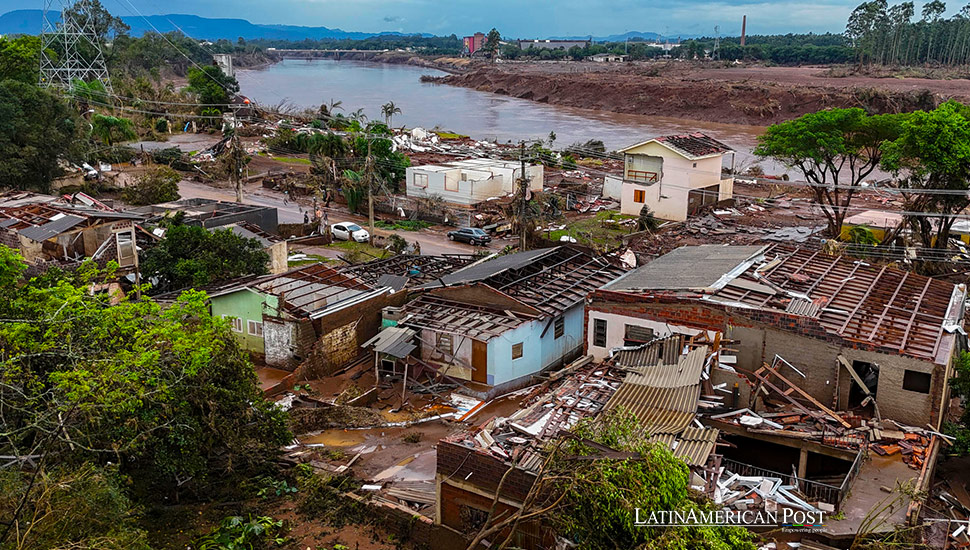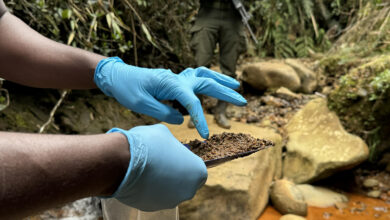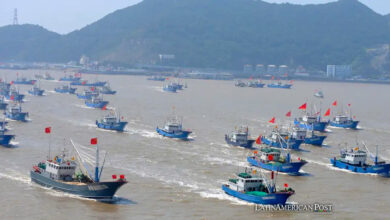Catastrophic Floods in Brazil: A Call for Regional Solidarity and Action

Following unprecedented flooding in southern Brazil, the city of Porto Alegre faces a dire crisis. Eighty percent of residents lack running water, prompting urgent calls for adherence to water rationing measures.
Porto Alegre, a bustling metropolis in the southern state of Rio Grande do Sul, Brazil, has been brought to its knees by the worst flooding the region has seen in over 80 years. The devastating waters have claimed at least 90 lives and left more than 130 people missing, disrupting the lives of millions and exposing the vulnerabilities of a city unprepared for such extreme weather events.
Water Rationing Decree: Porto Alegre Faces Crisis
Last Tuesday, the mayor of Porto Alegre issued a desperate plea to the city’s residents, urging them to comply with a strict water rationing decree. This measure was necessary as the floods incapacitated five of the city’s six water treatment facilities, leaving a staggering four-fifths of the population without running water.
Maria Vitória Jorge, a yoga teacher in downtown Porto Alegre, represents just one of the thousands facing these harsh realities. With her apartment building flooded, she withdrew a significant portion of her savings to secure temporary housing for herself and her parents in a less affected state area. Her journey to safety highlights the difficult choices many residents are forced to make as they prioritize necessities over comfort and stability.
The flooding in Porto Alegre is part of a larger pattern of extreme weather events impacting different parts of the world. In Latin America, where many countries are prone to natural disasters such as floods and earthquakes, the devastation in Porto Alegre is a grim reminder of the need for improved infrastructure and disaster preparedness.
Efforts to rescue those stranded by the floods are ongoing. More rains are forecast for the region, exacerbating the already dire conditions. The city’s airport and main bus terminal are submerged and closed, cutting off major transportation routes and making it challenging for aid to reach those in need.
National Mobilization: Response to the Crisis
In response to the crisis, other Brazilian states have mobilized support, sending trucks loaded with donations to the affected areas. However, the need for drinking water, food, and personal hygiene products remains critical, as public health experts warn of the increased risk of waterborne diseases, such as dengue fever and leptospirosis, which could further complicate the disaster response.
Amidst this chaos, the community spirit remains strong. About 100 displaced individuals near the airport have set up makeshift camps, hoping to salvage what they can from their homes. The resilience displayed by these communities is commendable, but the situation remains precarious.
The national response has been swift, with Brazilian President Luiz Inácio Lula da Silva visiting the state to coordinate disaster response efforts alongside other government officials. The federal government also works to prevent looting and maintain security in disaster-struck areas, deploying National Guard troops to support local forces.
This catastrophe not only disrupts lives but also threatens the regional economy. Rio Grande do Sul is a major producer of rice, a staple in the Brazilian diet. The floods have delayed the harvest, potentially affecting food supply chains and forcing the country to consider importing rice and other staples to meet domestic needs.
The situation in Porto Alegre calls for a concerted effort at the national level and internationally. Latin American countries share similar risks regarding natural disasters, and there is a pressing need for regional solidarity and cooperation in disaster preparedness and response. Sharing resources, knowledge, and technology across borders could significantly enhance the region’s ability to manage such crises effectively.
Opportunities for Growth: Learning from Adversity
As Porto Alegre and its residents strive to recover and rebuild, the disaster underscores the urgent need for comprehensive urban planning and infrastructure development that can withstand the challenges posed by climate change and extreme weather events. It also highlights the importance of community resilience and the role of local and national governments in safeguarding their citizens against such unpredictable disasters.
Also read: Catastrophe in Brazil: Rio Grande do Sul Faces Fatal Floods
While the floods in Porto Alegre represent a significant setback, they also offer growth and improvement opportunities. By learning from this experience and investing in better preparedness, Brazil—and Latin America—can hope to mitigate the impacts of future natural disasters, protecting its people and their livelihoods against the increasing volatility of our global climate.





